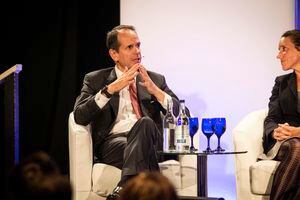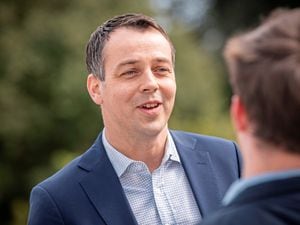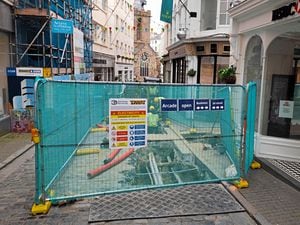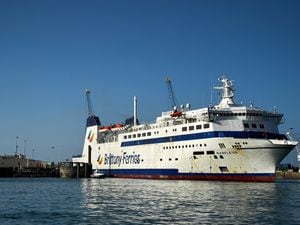Business leader rallies industry to take lead on climate crisis
BUSINESS has been told to lead the battle against the ‘climate emergency’.

Michael Bonte-Freidheim, chief executive officer of NextEnergy Capital, issued the rallying cry for business to act at the Guernsey Institute of Directors’ annual convention that focused on climate change and was held at Beau Sejour.
‘From someone who is in the middle of this discourse, we are at the tail-end of a climate emergency.
‘We are not at the beginning of a climate emergency that we can look to the spectacular young students of the future to solve for us,’ he said.
‘As business decision-makers we cannot rely on policy to solve the issue to find a solution for us to then follow.
‘The reality is that decision-makers in business, i.e. those that are in this room this evening, is that it is up to us to act.’
It was from this position, Mr Bonte-Freidheim said that he had founded NextEnergy to get on with taking climate action without policy support being ready.
‘Five years ago we generated maybe zero megawatts of energy.
‘Last year we generated enough roughly to power 150,000 to 200,000 people’s homes – which if I understand it correctly is a multiple of what the island requires in terms of energy generation.’
The firm, he said, was one of the most carbon neutral businesses in the UK – which including setting up a foundation and allocating 5% of the company’s profits to undertake necessary incremental measures to meet such green objectives.
The pricing of carbon had been ‘extremely wrong’ over the last 15 years, according to Mr Bonte-Freidheim.
‘A large part of the wealth that has been created is because we have mis-priced the use of resources to achieve that wealth.’ Younger people would have ‘to pay the price, hopefully along with us,’ he added.
‘I personally am expecting that in two, three, five years, society, the politicians, the regulators will turn around and will say: “We are not meeting our carbon reduction objectives that we set last year, two years ago, five years ago and we have to slap a carbon tax on carbon emissions’’.’
But there was a bigger business opportunity, including for Guernsey in terms of where it was on the ‘value chain’ in terms of the decarbonisation of the global economy.
‘The investment opportunity is around trillions of dollars in the next 10, 20, 30 years being reallocated from other parts of the economy into the energy transition game.
‘So it’s not about carbon credits, it’s not about carbon taxation, it’s about that massive amount of capital that is necessary to achieve that social good,’ said Mr Bonte-Freidheim, who formed part of a panel discussing green finance.
The panel was also made up green finance expert Douglas Farquhar, principal consultant of DNV GL, Fiona Le Poidevin, chief executive officer of The International Stock Exchange, Dr Andy Sloan, chair of Guernsey Green Finance, and Deputy Lindsay de Sausmarez, who is a member of the Committee for the Environment and Infrastructure.
n Guernsey IoD chair John Clacy expressed confidence that the island could meet the green finance challenge, adding that the attendance of hundreds of members of the business community to the convention was a ‘testament’ to the importance of climate change and the belief that Guernsey could have a ‘meaningful impact’ globally.





